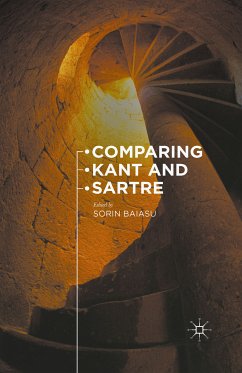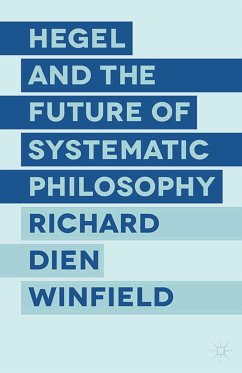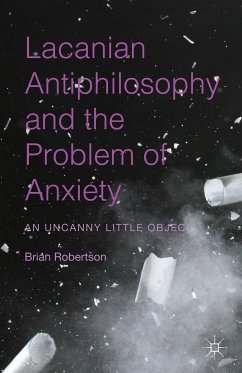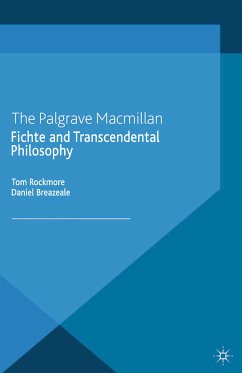
Comparing Kant and Sartre (eBook, PDF)
Versandkostenfrei!
Sofort per Download lieferbar
40,95 €
inkl. MwSt.
Weitere Ausgaben:

PAYBACK Punkte
20 °P sammeln!
For a long time, commentators viewed Sartre as one of Kant's significant twentieth-century critics. Recent research of their philosophies has discovered that Sartre's relation to Kant's work manifests an 'anxiety of influence', which masks more profound similarities. This volume of newly written comparative essays is the first edited collection on the philosophies of Kant and Sartre. The volume focuses on issues in metaphysics, metaethics and metaphilosophy, and explores the similarities and differences between the two authors, as well as the complementarity of some of their views, particularl...
For a long time, commentators viewed Sartre as one of Kant's significant twentieth-century critics. Recent research of their philosophies has discovered that Sartre's relation to Kant's work manifests an 'anxiety of influence', which masks more profound similarities. This volume of newly written comparative essays is the first edited collection on the philosophies of Kant and Sartre. The volume focuses on issues in metaphysics, metaethics and metaphilosophy, and explores the similarities and differences between the two authors, as well as the complementarity of some of their views, particularly on autonomy, happiness, self-consciousness, evil, temporality, imagination and the nature of philosophy.
Dieser Download kann aus rechtlichen Gründen nur mit Rechnungsadresse in A, B, BG, CY, CZ, D, DK, EW, E, FIN, F, GR, HR, H, IRL, I, LT, L, LR, M, NL, PL, P, R, S, SLO, SK ausgeliefert werden.












